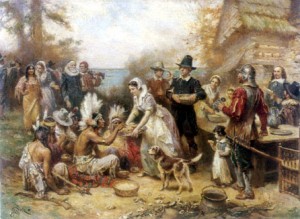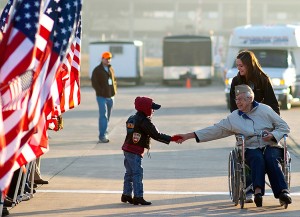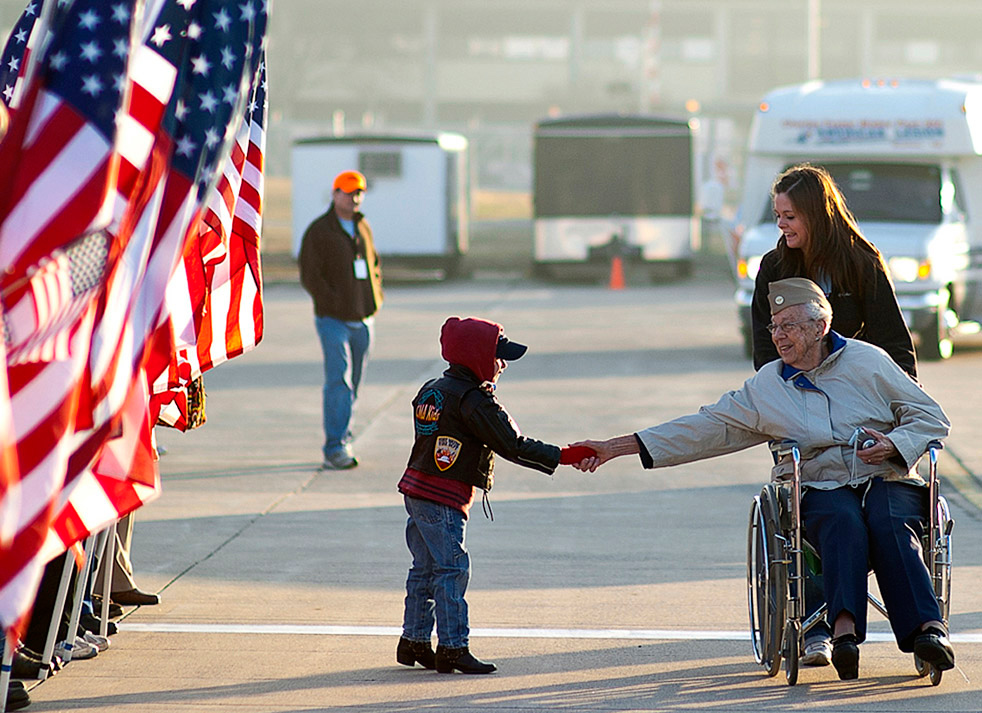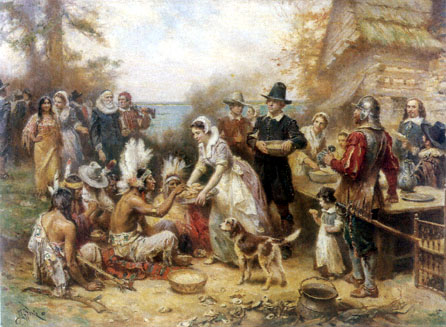 I wonder what would happen if this Thanksgiving holiday was more traditional. I am not thinking of the harvest festival celebration of abundance common to all cultures, but of the practice of public days characteristic of the Pilgrims and Puritans themselves.
I wonder what would happen if this Thanksgiving holiday was more traditional. I am not thinking of the harvest festival celebration of abundance common to all cultures, but of the practice of public days characteristic of the Pilgrims and Puritans themselves.
These public days were the opposite of Thanksgiving as we have come to know it. Rather than a secular celebration of abundance and consumption, these special days were set aside for contemplation, fasting, the public admission of faults, and petitions for reform and redemption. They were spiritual as well as communal occasions. Indeed, they began in Europe as Calvinist holidays which substituted for abandoned Catholic holy days. Whether called to petition the Almighty for relief from hardship and suffering, or to give thanks for having received such assistance, they were undertaken to seek the possibility of redemption.
Our forebears recognized the need for being redeemed. They understood, too, that the possibility of redemption came only with open and honest confession, with the asking of forgiveness, and with the public resolution to amend one’s ways.
Go to the State House in Boston to see a mural commemorating one such famous public moment: “1697, Dawn of Tolerance… Public Repentance of Samuel Sewall for his Actions in the Witchcraft Trials.” Sewall was a prominent churchman and leader of the Massachusetts Bay Colony, and had been one of the Salem witch trial judges who condemned over thirty women and men to death. He helped preside over twenty executions before they were stopped by the governor. But four years later he had had a change of mind and heart, and stood in front of his congregation at the church we now call Old South during a fast-day service, as his minister read his public statement accepting “the blame and shame” for the injustices of the witch hunt.
What we remember as a dawn of tolerance for the nascent community was surely a transformative moment for at least one congregant, Thomas Sewall himself. In the years that followed, he strove not only to reform his ways but to improve his society. He went on to write and speak on behalf of radically enlightened beliefs – the virtue and godliness of Native Americans, the moral necessity of abolition, the rights and equality of women – and so helped lead his colony, and our country, to a more perfect future.
This kind of community reform, founded on the basis of the social obligation we owe to others to reform ourselves, is certainly no less necessary today. So while we have much to be thankful for even in hard times, more is required of us than gratitude. George Washington said in his original Thanksgiving proclamation that we should ask “pardon [for] our national and other transgressions….to render our national government a blessing to all the people.” Abraham Lincoln, when he established Thanksgiving as a national holiday, implored the Almighty “to heal the wounds of the nation” by expressing “humble penitence for our national perverseness and disobedience.”
We could do the same.
This Thanksgiving, a moment of reflection will bring readily to mind a host of transgressions both national and personal. With the acknowledgment of wrongdoing, we just might begin to have real hope for change; with the acceptance of blame, we can begin to rightfully believe in change’s possibilities; with a humble pledge to each other to repair the harms in which we have been complicit, we can yet know the power of redemption.
 He was a boy
He was a boy


